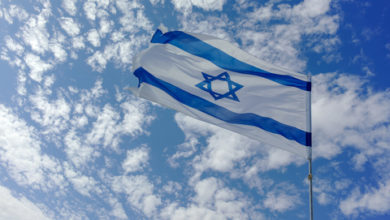The Wisdom of Edom
Based on a verse from this week’s Haftarah, our sages have taught us the following: “If a person tells you, ‘There is wisdom among other nations,’ believe it, as is written, ‘I will destroy the wise men from Edom and the understanding from Mount Sei’ir’ [Obadiah 1:8]. If he tells you, ‘There is Torah among other nations,’ do not believe, as is written, ‘Her king and her leaders are dispersed among the nations, there is no Torah’ [Lamentations 2:9].” [Eichah Rabba 2:13]. The verse which describes the destruction of the wisdom of Edom implies that in fact they do have wisdom. There would seem to be a direct link between the characteristic wisdom of Edom and the fact that it was lost. The wisdom of Edom, and clearly the wisdom of all of Western culture, competes with the wisdom of Israel. Western culture is rooted in an outlook based on criticism which is the foundation of modern science and has given mankind tremendous benefits. However, at the same time it cannot provide any help in trying to understand the internal essence of life. It will constantly remain external to existing phenomena, without being able to penetrate into them with any depth.
This was best explained by Rabbi Avraham Bibago, among the last of the wise men of Spain before the expulsion, in his book “The Path of Faith” (pages 150-151, published by Mossad Bialik). The wisdom of Israel, which is rooted in prophecy, is opposed by competition: the wisdom of Egypt, Babylon, and Edom (Rome). The struggle between the wisdom of Israel and that of each of the other nations takes place while Israel is in their midst, in exile. The wisdom of Egypt is based on developing the world of the senses and magic, and the wisdom of Babylon is based on imagination. For these two nations, the struggle against Israel was brought to an end in a relatively short time. In Egypt, Moses arrived after 210 years of exile. He began the series of plagues with actions that the sorcerers could also perform, until he exposed the limits of their powers. And after only 70 years of exile in Babylon, Daniel showed the superiority of the prophets by explaining the dreams of the King of Babylon which the wise men of Babylon were not able to explain.
As opposed to the first two exiles, the exile of Edom lasted for a very long time (today we know that it was 1880 years long). This is because the spiritual competition with Judaism is based on a very fine distinction, what Rabbi Bibago calls the “chush hatevunati” – the “sense of understanding.” This name, which was given by Rabbi Bibago to the concept of philosophy, has a double meaning: On one hand, an element of a sense or a feeling, and on the other hand an element of understanding. Thus, this approach claims that it has an understanding, an objective knowledge of reality, when in fact it involves subjective knowledge based on the senses. Ever since western philosophy admitted this weakness in the days of Kant, the way has been open for a renewal of the culture of the prophets through the return to Zion, and there is no longer any need for exile. From that time on, the calls for a return to Zion gained in strength.
Part of the wisdom of Edom will be preserved when its good elements are adopted and its corrupt elements are rejected by holy men, the children of Jacob: “And saviors will rise up on Mount Zion to judge the Mountain of Esau” [Obadiah 1:21]. One of the most important goals of redemption is the labor of judging and clarification of the values of Esau, which in a broad sense will encompass the entire world.
Source: “NOTES FROM THE HAFTARAH” – a biweekly column in Shabbat B’Shabbato (Zomet Institute) See: http://www.zomet.org.il/eng – Vayishlach 5776, issue 1600.



